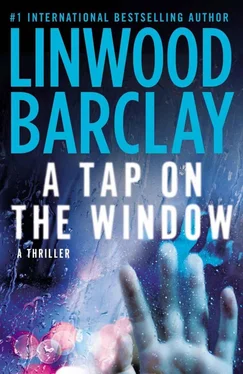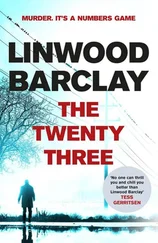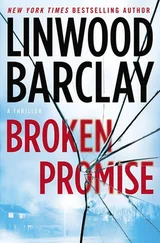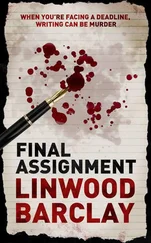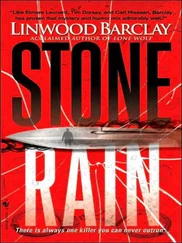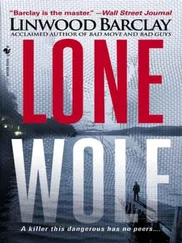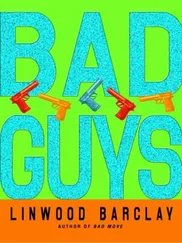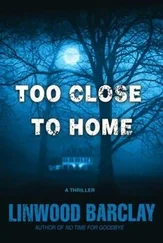“You said no one was here,” I said.
“Just in case,” he replied.
Twenty seconds passed with no one opening the door. Augie tried it, but it was locked. I wasn’t naive enough to ask Augie whether he needed a warrant. I wouldn’t have wanted to wait around for one, anyway.
“Let’s take a walk around,” he said. “Before I go busting down a door I might as well see if one’s been left open.”
We went around to the back and tried that door, but it was locked, too. Nor did we find any reachable windows that could be forced open. There were several basement windows at ground level, but Augie had no interest in smashing any of them. “I’m too old to get into a house that way.”
So we went back to the front door.
“Here goes,” Augie said, reared back, and drove the heel of his boot into the door just below the knob. The door didn’t open.
“Shit,” he said. “Nearly broke my knee.”
“Let me give it a shot.” I hit the door hard enough for the jamb to start splitting. Then Augie took another turn, and the door swung open.
“Probably going to get a bill from Phyllis for that,” he said.
We entered the house. Augie called out, “Hello? Police! Anyone home?” We heard nothing back.
We opened several doors. A couple opened onto closets, another onto a bathroom. The fourth door, just as you stepped inside the kitchen, opened onto a set of stairs that led down.
“After you,” Augie said.
I flicked on a light. The basement was low-ceilinged and unfinished. Bare bulbs instead of light fixtures. Cement-block walls instead of paneling. There were half a dozen rooms. One was a workshop, with tools hanging on the wall. A couple of them held old furniture. Another was jammed with metal filing cabinets. Augie opened the top drawer of one of them, glanced in.
“Business stuff for Patchett’s,” he said.
Another room contained a washer and dryer and rack. A shelf, grungy with spilled fabric softener and liquid detergent, was heavy with cleaners and chemicals.
“This is where the fire started,” I said.
“Huh?”
“It’s what got Dennis down here. Smoke from the dryer. Lint catching on fire, probably. Look, there’s the fire extinguisher on the wall.” Off the other end of the laundry room was a short hallway, and a door at the end.
“Augie,” I said.
He looked at the door, then at me.
“Guess we should have a look.”
I got ahead of him. There was a lock hanging from the door. I banged on it.
“Mr. Pearce? Are you in there? Mr. Pearce?”
Augie joined in. “It’s Augustus Perry, Mr. Pearce. Chief of police. We’re going to get you out of there.”
There was a shallow basement window by the door that came down a foot from the ceiling, and just as Claire had said, there was a key sitting on the sill. I grabbed it, fitted the key into the lock, twisted it, and the lock opened. I set it on the sill with the key.
I made an effort to keep my hand from shaking.
Augie placed his hand on the door and started to push.
“Whew,” he said, as we both caught a whiff of something unpleasant that someone had tried to mask with Lysol. A mix of mustiness, dead mice, urine, and God knows what else.
The door was wide open. I wasn’t prepared for what I was about to see. It wasn’t what I was expecting at all.
The room was littered with odd bits of furniture, stacks of old magazines, a busted record player with no arm, a box of eight-track tapes. An old metal rollaway bed that was folded up at the middle, a soiled-looking mattress trapped within it, was tucked into a corner behind more cardboard boxes. A junk room, illuminated by a bare bulb in an exposed ceiling receptacle.
That was it.
No Harry Pearce.
Augie turned and looked at me. “When Phyllis sends me the bill for her front door, I’m giving it to you.”
Phyllis unlocks the door and says to him, a broad smile on her face, “This is your lucky day.”
Harry Pearce sits up in bed. “What are you talking about?”
“Ice cream,” she says. “We’re going out for ice cream.”
Harry looks skeptical. “Don’t tease me.”
“It’s true. We’re going to do it.”
He’s a kid getting a new puppy. “This is the best day ever.”
It amazes her sometimes how childlike he has become over time. Once so argumentative and abusive, now so compliant and captivated by the thought of the simplest pleasures.
Phyllis nods. “It’s time,” she says. “It’s really time. But it’s going to take a bit of work to get you out. It’s not like we’ve installed ramps over the years.”
“That’s okay,” he says, swinging his legs out of the bed and leaning forward to grab onto the arm of his wheelchair. “We’ll figure something out.”
He pulls himself out of bed, twists, and drops into the chair. While his legs have withered away to sticks over the years, his arms are roped with muscle from lifting himself into and out of the wheelchair. Not that he’s had a lot of places to wheel himself around. The room he’s lived in for seven years is only ten by ten feet, and not the most hospitable environment. Cold cement floor, cinder-block walls. Every once in a while, she has let him wheel himself around the basement for exercise, past the washer and dryer, into the sewing room, or the workshop he once enjoyed, with his wrenches and other tools all arranged so perfectly.
But even those short times outside the walls of his cell have made her nervous. If someone were to show up unexpectedly, she’d have to return him quickly, close the door, get the lock on in a hurry.
She tried to tell herself the room was not a cell. For the longest time, it was Harry’s recovery room, where she and Richard treated him, looked after him, nursed him back to health. Sure, he was never the way he was before. Not even close. But what was done was done. One had to make the best of a bad situation, and hadn’t they done their best to do that for him? All this time?
In retrospect, sure, there were things they could have done differently. Maybe, if they’d called for an ambulance right away, the moment he tumbled down those stairs, they might have been able to do something for him. But who knew he was paralyzed from the waist down and that his spine was in all likelihood broken? How were they supposed to know that? And there was more at stake, too. After all, Richard had just joined the Griffon police. He had his whole future ahead of him. Was it right for him to give up all that for a momentary lapse in judgment? Was that fair?
In many ways, really, Harry only had himself to blame. He’d been a good man, most of the time. He’d been there for Phyllis when her husband died years earlier, had comforted her, helped her settle the estate, taken her to dinner, invited her, and her son, to join him on trips to California and Mexico. He’d treated Richard like he was his own son. Harry loved the boy, there was nothing fake about it, and Richard, who so desperately needed a father figure, loved him right back. If anything, it was the bond between them that persuaded Phyllis to let Harry move in with her, and eventually accept his proposal to let him be her second husband.
She should have paid more attention to the signs. There was something not quite right about Harry. Before their marriage, his obsession with record-keeping, with saving every receipt — he had six-year-old receipts from donut shops, for crying out loud — seemed like nothing more than charming eccentricities. In fact, he’d be a real asset at the bar, making sure the books balanced. But there were other things. Those books where he recorded everything he ate, in that small, precise handwriting of his, always making note of the date. Didn’t matter how often folks at Patchett’s teased him about it. It hadn’t occurred to Phyllis back then that maybe Harry was obsessive-compulsive.
Читать дальше
